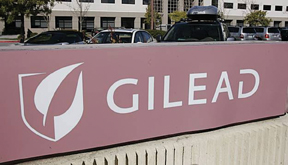Less than a month after FDA’s draft guidance for digital and social media was released, Gilead has kindly showed the industry how not to advertise a drug on Google AdWords.
OPDP slapped the drugmaker with an untitled letter today over promotional efforts for its hepatitis B treatment Viread, stating the ad (pictured below) omitted the drug’s established name, failed to communicate any risk information, and misbranded the product.

Within the 15 pages of guidelines released last month, the agency suggested benefit and risk information be treated equally in character-limiting services (Twitter/AdWords)—saying the two should be juxtaposed to offer consumers balanced information. Gilead did not include any risk information, however.
The agency also charged Gilead’s advertising and promotion arm with “providing evidence that Viread is intended for a new use for which it lacks approval, and for which its labeling does not provide adequate directions for use.” Namely, the ad states Viread prevents hepatitis B, while the drug is only approved as a treatment for patients who have the disease.
Gilead was also faulted for not using the chemical name for Viread—tenofovir disoproxil.
And while OPDP didn’t raise this point in its letter, in FDA’s draft guidance the regulator also stated that risk information should be linked as well—another guideline Gilead neglected to address.








